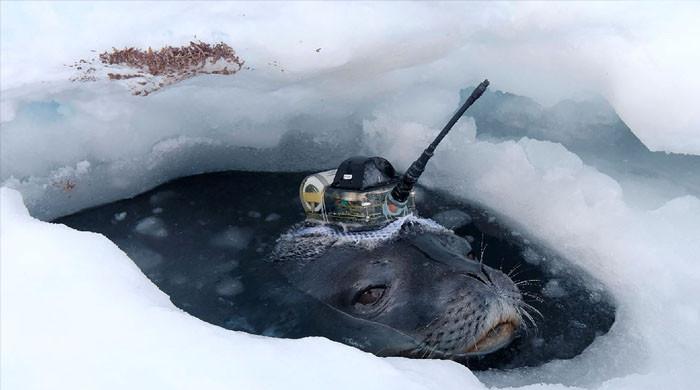Latest News
Seals help Japanese researchers collect data under Antarctic ice
Seals help Japanese researchers collect data under Antarctic ice

Latest News
Parliament, not the courts, should discuss the problem of electronic voting: Mandokhel, Justice
Latest News
Punjab starts a youth skills program to help people find work in the Gulf markets.
Latest News
The Silk Road Culture Centre ushers in a new era of cross-cultural interaction.
-

 Latest News3 days ago
Latest News3 days agoVPN use is neither illegal nor un-Islamic, according to the head of the Council of Islamic Ideology.
-

 Business3 days ago
Business3 days agoWhen the benchmark hits 109,881 points, the PSX-100 index sets a new record.
-

 Latest News3 days ago
Latest News3 days agoDY PM Talks With Turkish FM About Syria’s Developing Situation
-

 Latest News3 days ago
Latest News3 days agoSHC is unhappy with efforts to repatriate Hammad Siddiqui from the Baldia plant fire.
-

 Business3 days ago
Business3 days agoSIFC Initiates Carbon Market Initiative: Pakistan Pursues Green Investment at COP29
-

 Latest News3 days ago
Latest News3 days agoIndia Is Still Violating Human Rights in IIOJK
-

 Latest News3 days ago
Latest News3 days agoPA Speaker Urges PM: Comprehensive Political Situation Addressed in the Meeting
-

 Latest News3 days ago
Latest News3 days agoAnti-Smuggling Operations: FC Confiscates Smuggled Goods Valued at 320 Million Rupees






















